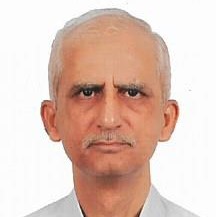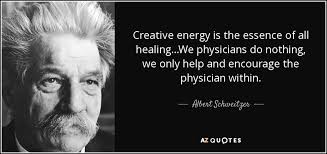Introduction: With ever-increasing medical knowledge, remaining
updated within one's area of work is a challenging task. The problem is
compounded even more in these pandemic times. Technological innovations have
been playing an increasing role in the practice of medicine. Applications such
as artificial intelligence may help in making faster diagnoses of the
structural (body) aspects of diseases, but every disease also has thought-based
(mind) and feeling-based (spirit) components that are beyond the realm of the
machine.[1],[2] In this context, it is appropriate to remind ourselves of
spiritual intelligence (SQ), the hidden tool that is within each one of us.
The Three Inner Faculties: When the disease is new with no existing
protocols or if the protocols are changing frequently because of new
developments, the clinician may come up with a novel way of treating the
disease based on past experiences and direct observations. In fact, this is how
new treatment methods are developed, which are then corroborated by similar
methods developed by others. The astute clinician instinctively tries a new
treatment in an urgent situation, which turns out to be successful. This aspect
of the physician has been at the forefront during these uncertain days of the
COVID-19 pandemic.
Integrating Aspect of
SQ: The "inner self" or
"soul" is pure consciousness that is reached by each one of us during
the stage of deep sleep. The information and experiences of the waking state
are presumably integrated and made meaningful during the bliss of deep sleep.
This is the integrating aspect of SQ, which is inbuilt. After the person wakes
up, the blissful wisdom of deep sleep is carried forward, informing and
influencing the thoughts and actions of the day. A shortfall in the quality of
deep sleep is reflected as lack of bliss and an impaired SQ.
Expressive Aspect of SQ: Spiritual intelligence is by nature comfortable
with positive human qualities such as truth, love, and peace. If these
qualities are lacking, the "inner self" is not satisfied giving rise
to unease or stress experienced by the individual. SQ (relating to the
"inner self" or "soul") is the base from which IQ and EQ
(relating to "self" or ego) operate during the waking state. The
individual connected with the "inner self" is calm, composed, and
gives his (or her) best. Such an individual can function from the level of
"self" or ego as well as from "inner self." Recently,
studies in neuroscience have clarified how IQ, EQ, and SQ work and are related
to each other. While IQ pertains to the left brain and EQ to the right brain,
SQ involves synchronous activity of the whole brain.[4]
Good Quality Clinical Work Depends on Finely balanced IQ and EQ: Clinical work involving patients helps to fine-tune the EQ of the physician. On the other hand, when fascination for acquiring knowledge leads to overemphasis on IQ, neglect of EQ can result.[5] What matters is a fine balance between IQ and EQ, functioning on the base of a sound SQ, for optimal performance. This applies not only to health professionals but also to all individuals.
Meeting the Challenge
of Dealing with Uncertainties: Physicians may tend to become biased in favor of
using either their IQ or EQ. Especially in critical situations, they may tend
to become either too objective or too subjective. However, the physician who is
calm and connected to his "inner self," uses the instinctive wisdom
of his SQ by maintaining a balance between IQ and EQ and bringing the best out
of these two faculties. He will be comfortable in dealing with uncertainties at
a time when tolerating uncertainty has become a challenge for the health-care
system.[6] He can navigate through any clinical situation with confidence and
equanimity. In addition, the process of becoming updated with the latest knowledge
becomes a creative and selective process. The physician instinctively chooses
what is relevant and meaningful from a plethora of available information.
Tapping the Potential of the Soul: In recent times, the importance of
being connected with the "soul" is being increasingly recognized in
every field of activity.[7] The practice of meditation helps to gain awareness
and connection with one's "inner self" or "soul." The
process and the beneficial effects of meditation have been well studied.[8]
While everyone benefits by practicing meditation and connecting with the
"soul," it is relevant to note that the quality of work of the
physician is also enhanced. With awareness of the "inner self" comes
the ability to move between the ego and the "soul."[9] When the
development of this ability forms the core of medical education, it allows the
full potential of the physician as a human resource to be tapped and utilized.
Conclusion: Connecting with SQ or the "inner self" or
"soul" can be a simple and natural process for some but can be
strange and difficult for many, since matters pertaining to the
"soul" have become neglected in this age of science and technology.
Individual insights corroborated by studies in neuroscience have simplified its
understanding bringing it within the grasp of the modern mind. The instinctive
wisdom of SQ can be utilized by the individual when there is a fine balance
between IQ and EQ. While connecting with SQ benefits everyone, it is of
particular relevance for the physician in patient care as well as in medical
education. Of even more significance is that whenever the hidden tool of SQ is
utilized, physicians as human beings enjoy fulfilment and peace within.
References:
1. Amisha, Malik P, Pathania M, Rathaur VK. Overview of artificial intelligence in medicine. J Family Med Prim Care. 2019;8:2328-31. doi:10.4103/jfmpc.jfmpc_440_19.
2. Vijayaraghavan P. Quantum view of medicine and its implications. Int J Acad Med 2017;3:334-5.
3. Moawad H. How Physicians Can Develop EQ; 2018. Available from: Click Here.
4. Griffiths R. Top Ten Features of Spiritual Intelligence; 2014-2019. Available from: Click Here.
5. Is IQ overrated in Medicine? Advisory Board; 2018. Available from: Click Here.
(Note: You can view every article as one long page if you sign up as an Advocate Member, or higher).






